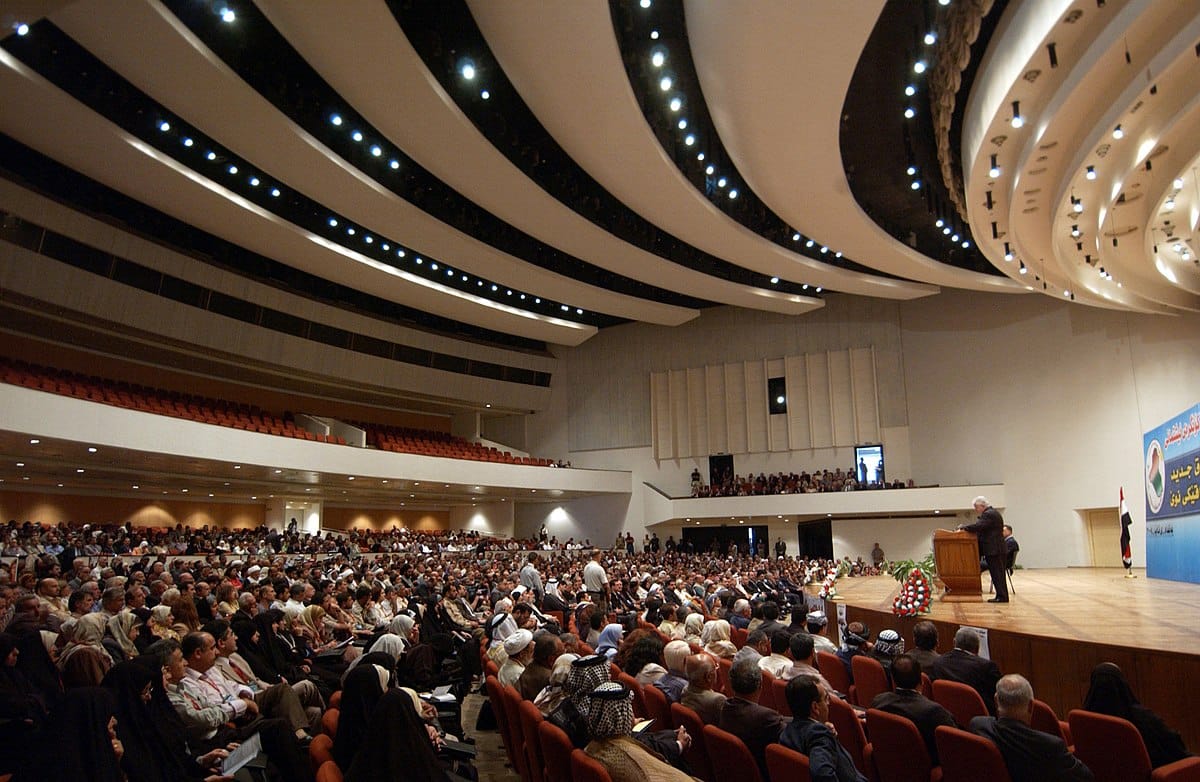Iraqi’s parliament approved on March 31 amendments to the election law, a move that has angered independent lawmakers and smaller parties because the new legislation can weaken their chances. The amendments were endorsed despite objections from protestors and independent politicians. These amendments could make it hard for independent candidates and small parties to compete against big parties and to reach the legislative.
Reversal of the law
Members of Parliament (MPs) were forced to adopt a new election law. This came after pro-reform October protesters swept Iraq in late 2019, with many small electoral districts in each province and the winner being the party with the highest number of votes. That move gave new independent parties, many of which were supported by protesters, a stronger chance of winning seats in the 329 – seat parliament in October 2021 elections. The new amendments return the law to the modified Sainte Lague system introduced in 2014, which uses a complicated formula to apportion seats and tends to favour established parties. They also reverse a key change in 2019 law, reducing the number of constituencies from 83 to 18, which is one district for each gouvernante.
Protests on the amendment
Independent parliamentarians walked out from the session trying to delay it, but the legislative body secured the minimum it needed. In a bid to block the voting, the independents entered the hall, chanting against the amendments and demanding to end the session. “No, no to Sainte Lague,” they shouted inside the hall. At one point, Speaker Mohammed Al Halbousi asked the security personal to move MPs who refused to. “We are being pushed by the guards,” Amer Ismael said while filming with his phone. “This is a humiliation to us.” Hundreds of the Sadr Movement’s supporters have in recent days protested against the amendments outside the parliament building and blocked roads leading to the heavily fortified Green Zone in the capital, Baghdad. “These amendments will only fortify the rulers in power and their corruption, and exclude independent and new political groups, one of the protesters, Mohamed Al-Deemi, said.
A prominent activist party that emerged from October 2019 protests, the Imtidad Movement, denounced the “flagrant aggression against the representatives of the people” and described it as “a challenge to the peoples’ will”. “The assault against the lawmakers by the security forces and threatening them with suspension by the parliament Speaker is a dangerous precedent that contradicts the principles of democracy and ethical values,” the party said in a statement. A lawsuit will be filed at the Federal Supreme Court to challenge the outcomes of the session, it said.
Elections
Since 2003, Iraq has held five parliamentary elections, all with different systems for allocating seats. The latest was in October 2021, when the powerful Sadrist Movement, endorsed by Shiite cleric Moqtada Al Sadr, emerged as the clear winner with 73 seats. But months later, the process of forming the government ground to a halt. Mr Al Sadr ordered his followers to resign from parliament and withdraw from the political process. He sought to form a majority government and his absence from the legislative body and political process has strengthened his Shiite rivals in the Iran-backed Co-ordination Framework after suffering a major blow in 2021 elections. The new amendments were pushed by the Co-ordination Framework, which now has the majority inside the parliament and is the main supporter to Prime Minister Mohammed Shia Al Sudani. The country is also planning to hold provincial council elections on November 6, its first in a decade. The Iraqi government has not yet scheduled the country’s next general elections. In a related development, the semi-autonomous Kurdish Regional Government said on Sunday that the region would be holding elections for its regional parliament on November 18, after a delay of a year.
Author: Manouk Bronzwaer

